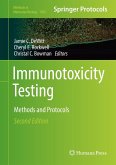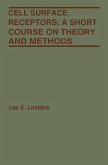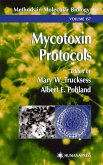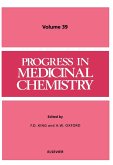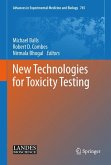Comprehensive and innovative, Immunotoxicity Testing: Methods and Protocols is a critical, one-stop reference resource for the most important and commonly used laboratory protocols in immunotoxicology.
Dieser Download kann aus rechtlichen Gründen nur mit Rechnungsadresse in A, B, BG, CY, CZ, D, DK, EW, E, FIN, F, GR, HR, H, IRL, I, LT, L, LR, M, NL, PL, P, R, S, SLO, SK ausgeliefert werden.
"This volume forms part of the Springer Protocols 'Methods in Molecular Biology' series ... . All the chapters are quite well written, being concise and clearly laid out. ... In conclusion, this is a useful laboratory professional's 'workshop manual' for the most well-established immunotoxicity assays, focusing very much on the procedures at the laboratory bench. It will be a useful basic source of information for anyone starting to establish some of the test methods in their own laboratory." (Peter R. Ryle, BTS Newsletter, Issue 37, Winter, 2010)
"In this book, Dr. Dietert of Cornell University has done an excellent job in covering concepts of immunotoxicology associated with analytical approaches to investigate mechanisms of toxicity and for the diagnosis of poisoning. Through very well-devised and illustrated texts by renowned researchers in immunotoxicology, the 26 chapters of this book cover the vast literature on approaches and strategies for immunotoxic testing, with detailed laboratory protocols. Thus, the book serves as a reference source for students, laboratory technicians and scientific researchers in toxicology." (Sandra Farsky, Brazilian Journal of Pharmaceutical Sciences, May, 2010)
"This book provides a collection of testing approaches and strategies with detailed laboratory protocols in the successful style of the Methods in Molecular Biology series. ... audience includes not only scientists working directly in the field of immunotoxicology, but also students, technicians, and lab and safety office personnel. ... meant to be used by a specific subgroup of immunologists, the protocols are also used in many laboratory situations and are not limited to immunotoxicity studies. ... The book appears to fill an important niche." (Marion C. Cohen, Doody's Review Service, September, 2010)



